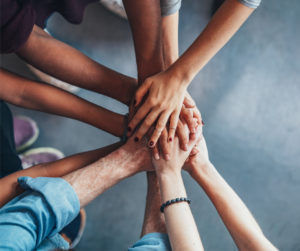Connection Can Strengthen Your Recovery

This article was written and published by The Fix
So, before you complain about your next social engagement, take a moment to think about the positive impact that connection has on your life.
The science of connection
Humans are social creatures. To be our healthiest, most of us require some social connection.
“One’s social life matters above and beyond what we already know about the ‘quick fixes,’” like dieting or exercising, researcher Yang Claire Yang told Livestrong.
Connection might also be more effective. People with close friends, in general, have their life expectancy extended. Having close connections has as big of an impact on your life expectancy as quitting smoking. In short: it’s super important.
Why does connection help keep you healthy? Scientists are still working to answer that, but research has shown that people who have close friendships are less likely to have high blood pressure, and more likely to have healthy immune systems. If you participate in healthy activities like hiking or walking with your friends, the impact on your health can expand even more.
Connection as an antidote to addiction
Having a meaningful, fulfilling life can help insulate you from the impact of mental illness and substance use disorder. On the other hand, suffering from loneliness can put you at higher risk for developing behavioral or emotional health issues, because you might not have a meaningful life without personal relationships, says Geoff Thompson, PhD, program director for Sunshine Coast Health Centre in British Columbia.
There are two types of loneliness to consider. Situational loneliness is what we’re all familiar with during the pandemic – the inability to see our friends or loved ones in person. Situational loneliness can be painful, but we’re still able to lean on loved ones and friends for support.
The more serious type of loneliness, where you feel that you don’t have any close personal relationships. And here’s the thing: you can experience chronic loneliness even when you’re putting yourself out there in the community.
“Research suggests that merely increasing social contact—encouraging young people to join the dragon-boat club or arranging card games for the elderly—may not be enough,” Thompson says.
Instead, you need to focus on finding meaning in a few core relationships to combat chronic loneliness. Remember this when you’re shuffling around various parties and social functions. When it comes to staying connected, quality is more important than quantity. Take a few minutes to really connect with your friend, sibling, or aunt over a deep conversation, rather than exchanging pleasantries with more people at the party.
Social safety net
Having connections, whether friends or family, can help you feel secure that someone will help you if you need it. Relationships can provide a sort of social safety net – you have someone you can call for small things, like picking up a child when you’re running late, or large things, like feeling that your recovery is faltering.
Sometimes, especially with family, the people we can count on aren’t necessarily the ones who we feel closest to. You might not be up to date on your brother’s dating life or latest hobby, but you know he would be there if you called in the middle of the night. That’s a different type of connection, but one that is still important.
When health means distance
Having personal relationships can help support health. Unfortunately, not all relationships are healthy ones. If you have connections with friends or family that make you feel drained or unhealthy, rather than invigorated and grateful, you may need to reconsider the role that those people play in your life.
While family bonds run deep for many people, you are not obligated to compromise your health or put up with toxicity for anyone – even family.
This new year, take time to think about which relationships bring you the most joy. Those are the bonds that will help keep you healthy and support your recovery. Spend more time tending to those relationships, while allowing yourself to step back from relationships that no longer feel meaningful to you.